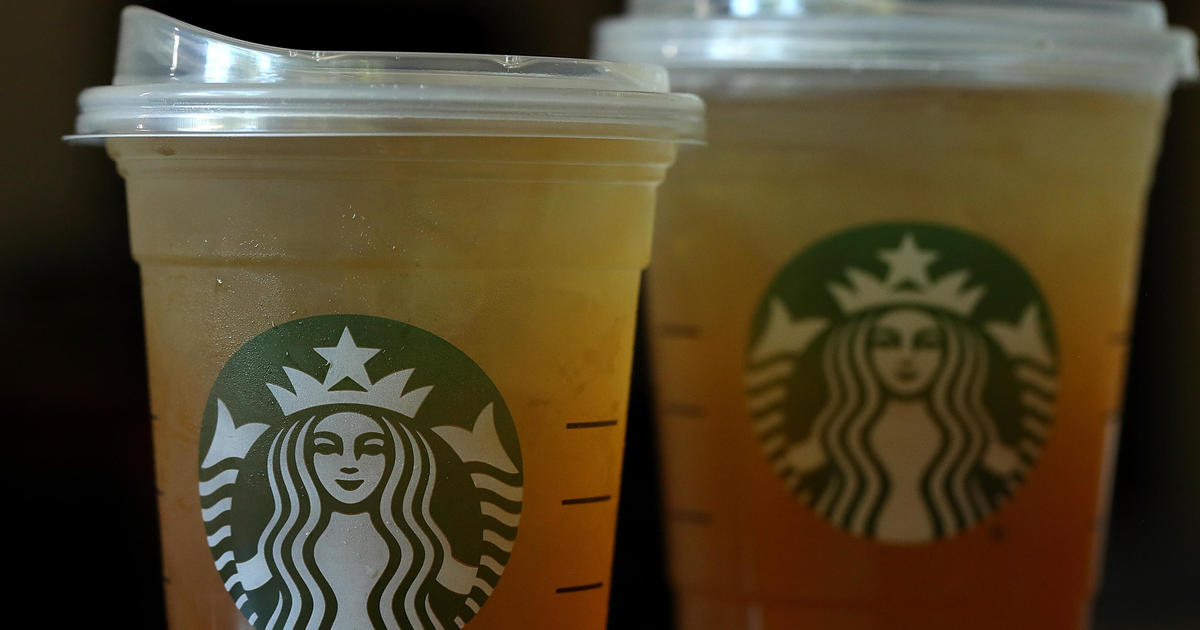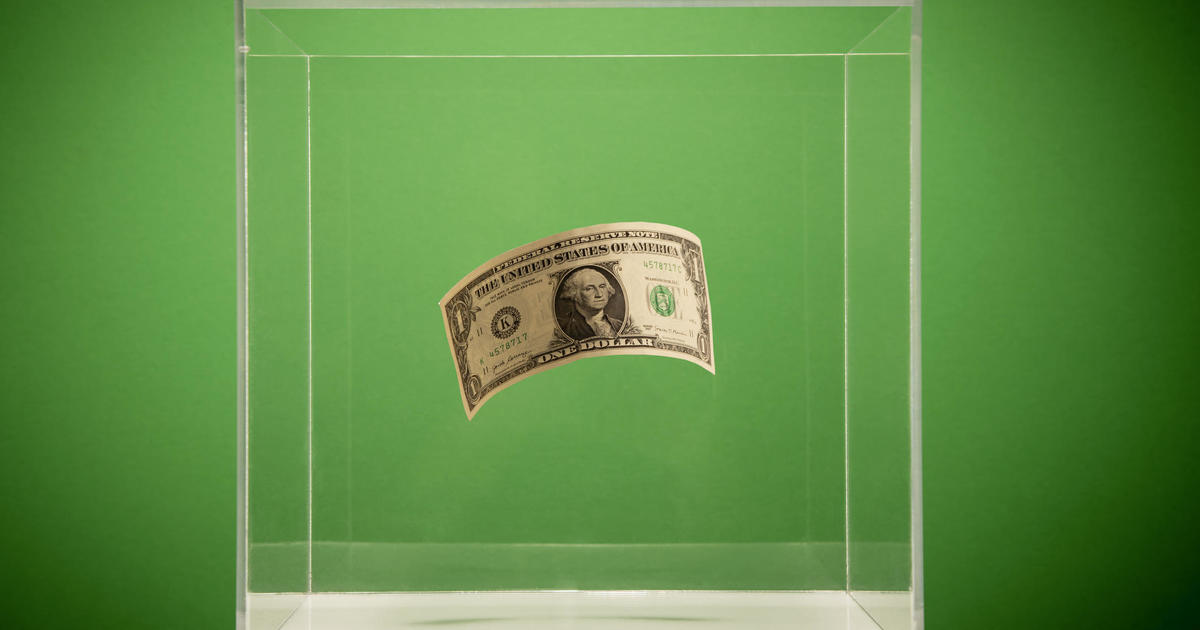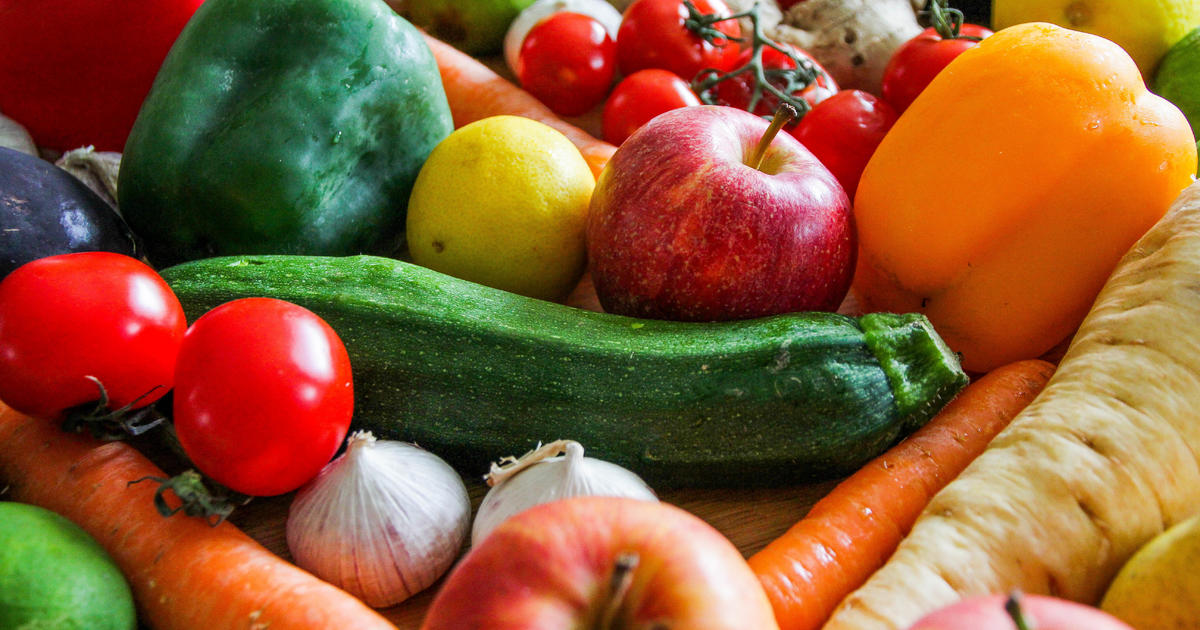Recycling plastic is a total bust, industry critics say
Americans' use of plastic boomed during the pandemic, including mountains of single-use items such as takeout containers, plastic bags and, of course, face masks. At the same time, we're recycling less of this waste than in the past, according to a pair of recent studies.
Even before the health crisis, only 5% of plastic made in the U.S. was recycled in 2019 — less than the amount of plastic that was burned that year, scientists with the National Renewable Energy Laboratory wrote in April.
"It is dismally low," said Judith Enck, president of advocacy group Beyond Plastics of the nation's recycling rate.
Beyond Plastics and The Last Beach Cleanup recently examined government data from the Environmental Protection Agency and on U.S. exports to come up with a recycling estimate. Their report found that, similar to the NREL's study, only between 5% and 6% of plastic made in the U.S. is recycled.
That's lower than figures estimated by the EPA, but not by much, said Enck, who noted that plastic recycling rates have always been low.
"In the whole history of plastics recycling, it never ever got to double digits — it never got to 10%," she said. That stands in stark contrast to paper, for which the recycling rate has steadily risen and now stands at about 66%.
Enck, a former EPA administrator, pointed to several reasons why so little plastic is recycled. Until recently, a great deal of plastic trash in the U.S. was exported to China and counted as recycled even while many environmentalists suspect it was incinerated. But with China banning most U.S. trash imports in 2018, that waste has been diverted to other countries and is no longer counted as recycled.
The trouble with plastic
Plastic recycling is hard. In large part that's because, unlike aluminum or glass, plastic is not composed of a single substance but many.
"There are thousands of different types of plastics, and they are all different polymers, with different chemical additives and different colorants," Enck said.
"Think of your Tide detergent bottle at home: it's heavy-duty plastic — red, with different additives. Your ketchup bottle has different additives to make it squeezable," she explained. "It's not homogenous. You can't mix that all together and get a usable product."
As a result, sorting and processing it takes a great deal of effort. Even when plastic waste is collected, some is discarded for being too dirty, while up to one-third is lost to the recycling process itself, according to the Beyond Plastics report.
"A lot of times, when the recyclables make it to the recycling facility … a lot of it is garbage," Enck said. And the task has gotten even more difficult as more types of plastic are put on the market, such as squeezable food pouches.
The National Academies of Science, Engineering and Medicine concurs with the growing body of research that illustrates the inadequacy of plastic recycling.
"[T]oday's recycling processes and infrastructure are grossly insufficient to manage the diversity, complexity and quantity of plastic waste in the United States," the group concluded in a December report.
The Plastics Industry Association accused Beyond Plastics' report of cherry-picking evidence. In a blog post, the industry group said plastic recycling only became a commercial-scale industry in the 1990s, decades after paper, metal and glass recycling became established, and noted that recycling rates for plastic have steadily increased.
"Although plastic recycling rates currently remain lower than other materials, technologies to recycle more products, faster are actively being researched and implemented by industry and government alike," the trade group said.
"Artificially cheap"
Another factor make recycling unappealing to companies that use plastic even when it's physically possible: cost. Virgin plastic, which is mostly created from fossil fuels, is consistently much cheaper than the recycled stuff because recycling is labor-intensive while oil and gas are cheap, thanks in part to government subsidies.
"Because 99% of plastics are made from fossil-based feedstocks and the fossil fuel industry is subsidized, plastics are an artificially cheap commodity," the National Academies of Science said. Research firm IHS Markit concluded in a 2019 report that "economics have not been established to enable viable recycling."
Soda bottles made from recycled plastic can cost twice as much as new ones, Reuters recently estimated. (The Plastics Industry Association did not respond to questions about the economics of plastic recycling.)
Meanwhile, many major plastic producers seem less than fully committed to their own hearty endorsements of recycling. Oil and gas companies have invested more than $200 billion in plastic production to date, and intend to spend $400 billion over the next five years, the National Academies of Science found — 200 times the amount they've dedicated to waste-reduction efforts.
Investigations by NPR and other news outlets have found that the industry itself has long doubted that plastic could be recyclable, but proceeded with so-called greenwashing claims anyway. And the U.S. has consistently failed to reach recycling goals set in previous decades. In 1991, the main plastic industry group set a target of recycling 25% of plastic by 1995, only to retreat from that figure when it wasn't met.
"This is part of a lengthy trend — plastic recycling has been on a downward spiral," Enck said.
To tackle the ever-growing pile of plastic garbage in the Earth's waterways, Beyond Plastics and the National Academy of Sciences both advocate drastic reductions on plastic packaging, instead using paper, metal or glass and shifting to reusable containers.
"The plastics industry must stop lying to the public about plastics recycling. It does not work, it never will work, and no amount of false advertising will change that," Enck said.



